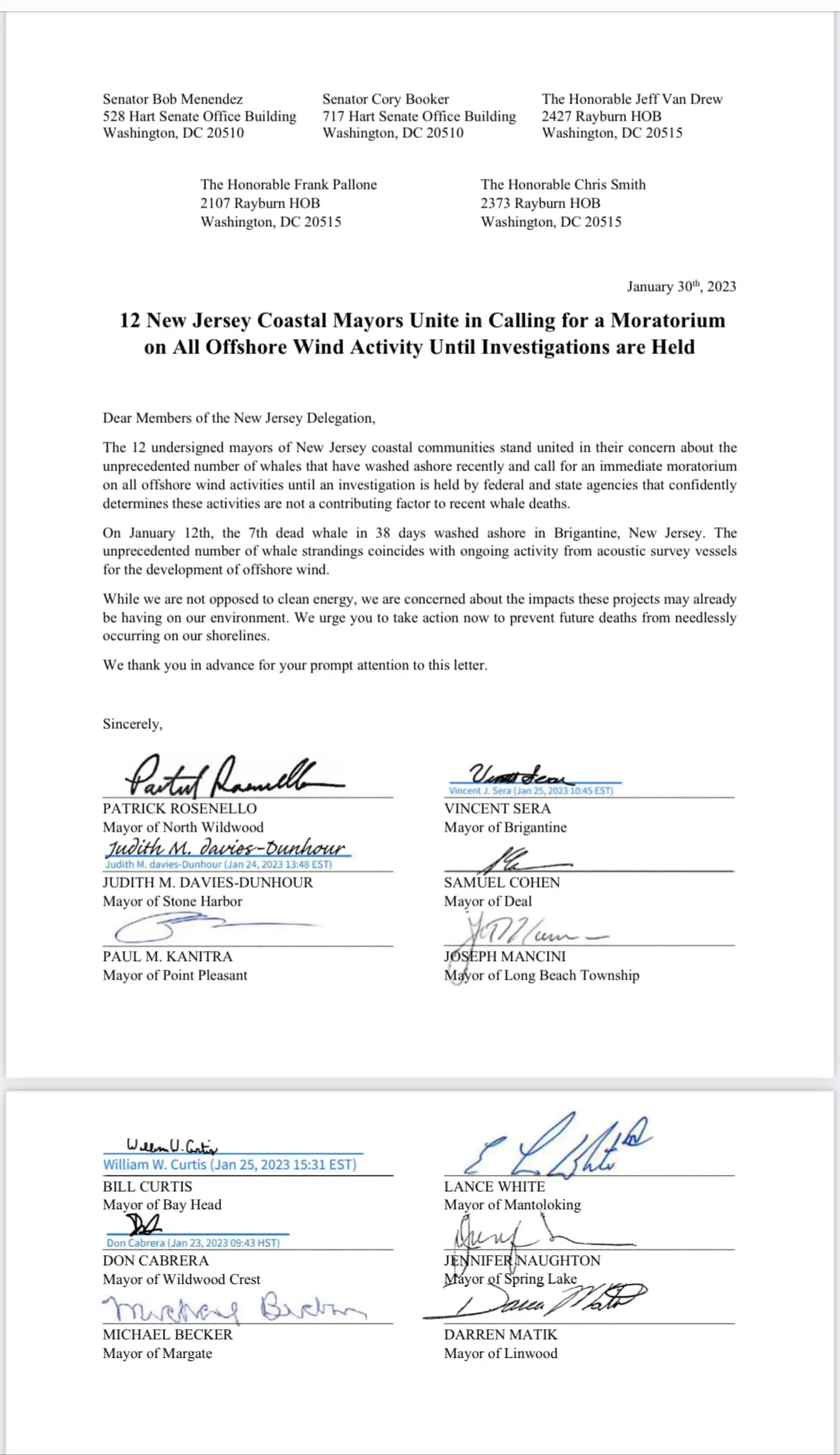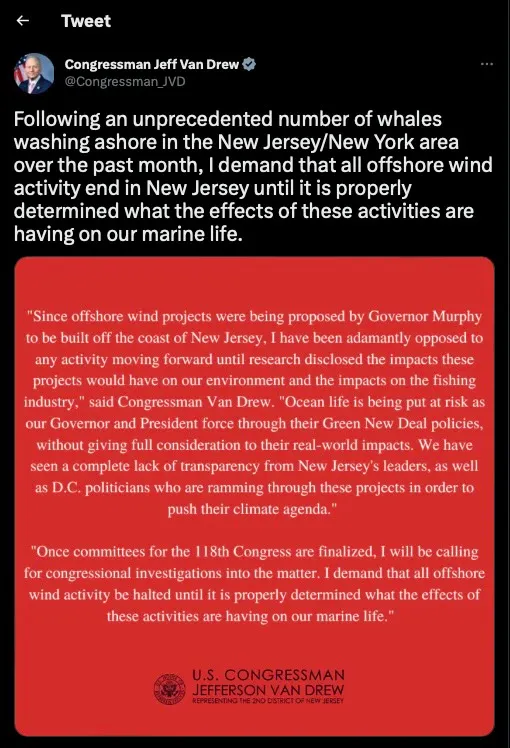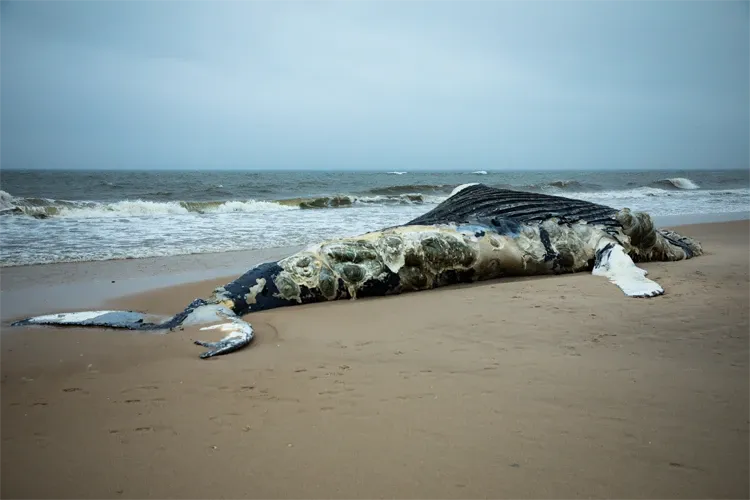A group of New Jersey mayors, state representatives, Congressmen, and environmental groups are calling for a moratorium on offshore wind energy development until unprecedented whale deaths are investigated.
In a letter to the New Jersey congressional delegation, 12 New Jersey mayors claimed that seven whales had died in the previous 38 days, which coincides when offshore wind energy acoustic surveying began.
“While we are not opposed to clean energy, we are concerned about the impacts these projects may already be having on our environment,” say the mayors.

"I can’t authoritatively say that all of the whales that are washing up are because of offshore wind farms,” said Seafreeze fisheries Meghan Lapp during an interview on Fox News. “What I can tell you is that the seven whales that washed up off New Jersey in the past month have all washed up during intense geotechnical surveying of wind farm leases off of New Jersey.”
The National Oceanic and Atmospheric Administration (NOAA) Fisheries denies any connection between the recent whale deaths and the offshore wind development:
At this point, there is no evidence to support speculation that noise resulting from wind development-related site characterization surveys could potentially cause mortality of whales. There are no specific links between recent large whale mortalities and currently ongoing surveys for offshore wind development.
NOAA Fisheries and the Bureau of Ocean Energy Management (BOEM) blame the string of whale deaths on ship strikes and fishing gear entanglement. Several environmental groups support the federal agencies’ response and claim that global warming is the biggest threat to marine mammals, not offshore wind farms.
“The number one threat to the marine environment is climate change,” said Allison McLeod, policy director for the New Jersey League of Conservation Voters during a January press conference. “Offshore wind is one of the most important tools we have to protect the entirety of our marine ecosystem.”
Several community leaders claim federal agencies are downplaying the number of whale deaths because offshore wind farming is a green industry.
“If this were any other industry in the world, and threatened or endangered species were showing up dead, everybody would be calling for a stop until we could get some scientific data as to what’s going on,” shared Vincent Sera, Mayor of Brigantine, New Jersey, during a recent interview.
Congressman Jefferson Van Drew, (R-NJ), vice-chair of the Transportation and Infrastructure Committee, tweeted that President Biden and the New Jersey governor were pushing their Green New Deal policies without considering the negative impacts.

In support of the moratorium, Clean Ocean Action explained how geotechnical surveying could harm whales:
The geotechnical survey boats assess sea-floor characterization by using high-level focused pulses of sound through vast areas of the ocean floor. Many whales hear and communicate in those frequencies, including humpbacks. Use of sonar at higher levels has been known to have harmful impacts on whales including deafening which can lead to starvation and death.
“There is no evidence that sound from high-resolution geophysical surveys, which are used to map sea floors for offshore wind farms, harms marine mammals,” said Erica Staaterman, a bioacoustician at the BOEM's Center for Marine Acoustics.
Proponents of the offshore wind energy activities moratorium claim that those supporting the projects are over simplifying the relationship between the whale deaths and the development activities. They believe that there needs to be an investigation into whether the offshore surveying activities are affecting whale behavior.
“We do not believe the federal response was relevant to the real problem, which is the disturbance to the whale and not the direct killing of the whale,” said Save Long Beach Island (SaveLBI) President Bob Stern.
Stern explained that the noise released during the surveying activity is high enough to disturb a whale’s behavior, including how it locates food and communicates. Stern claims that the federal response failed to address these concerns.



